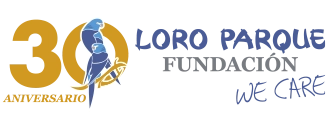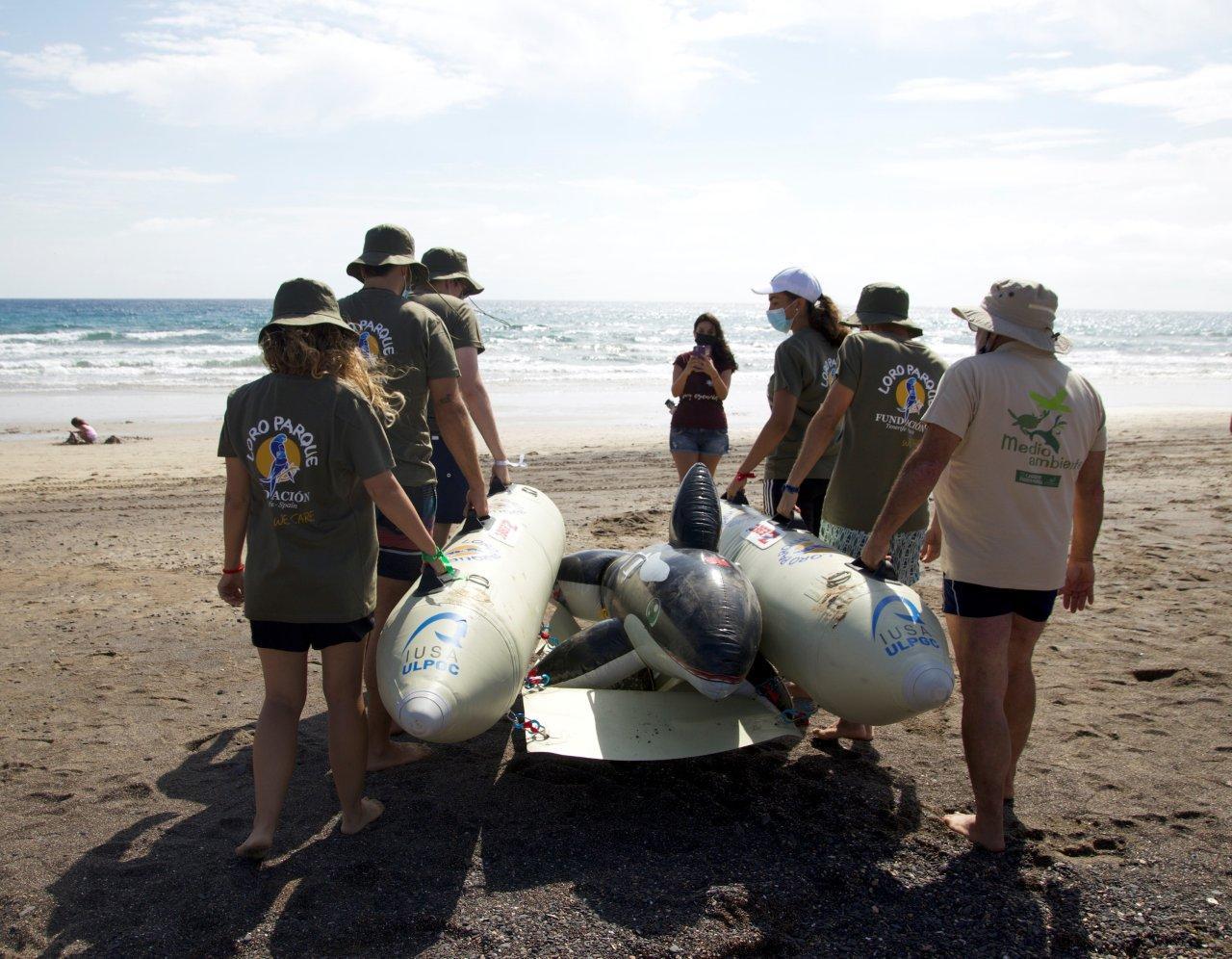SOME 40 PEOPLE PARTICIPATE IN THE WORKSHOP ORGANISED BY THE AVANFUER ASSOCIATION IN FUERTEVENTURA IN COLLABORATION WITH THE LORO PARQUE FUNDACIÓN, THE CABILDO DE FUERTEVENTURA AND THE IUSA, WITHIN THE FRAMEWORK OF THE CANBIO AND MARCET II PROJECTS
Puerto del Rosario, 30 August 2021. Playa Blanca, in Fuerteventura was the setting chosen by the Avanfuer Association to hold a workshop to raise awareness about the stranding of cetaceans on the Canary coasts, attended by some 40 people, with the aim of training 25 volunteers from various non-profit organisations and the general public in the use of the rescue pontoon and how to provide first aid to try to save the lives of these marine mammals. Loro Parque Fundación, the University Institute of Animal Health (IUSA) of the University of Las Palmas and the Cabildo of Fuerteventura collaborated in the activity, within the framework of the CanBIO and Marcet II projects.
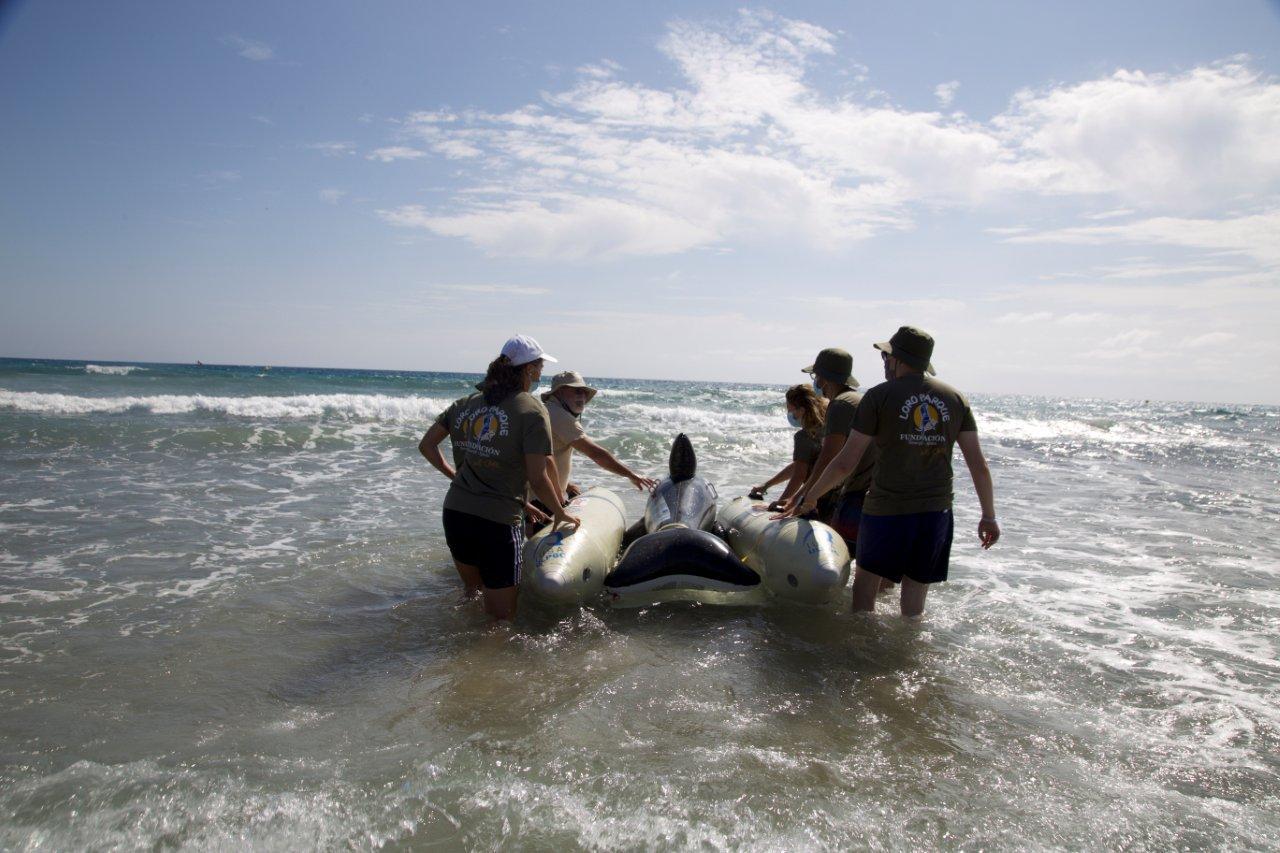
The Canary Islands are a biodiversity hotspot for cetaceans in the Atlantic Ocean and therefore stranded specimens frequently appear on its coasts. For this reason, several environmental and academic organisations are joining forces to establish a network to respond to this situation, which is aggravated by increased human activity and climate change.
This workshop consisted of a simulation of a mass stranding of cetaceans in which specialists from the University Institute of Animal Health explained to the attendees how to assess the state of health of a stranded cetacean and the chances of survival. To do this, the veterinarians used two rescue pontoons, developed by Loro Parque Fundación, which are essential for refloating the animals and returning them to the sea. These pontoons are prototypes designed specifically for this activity and thanks to these simulations, their functionalities are being improved and adapted to the characteristics of strandings in the Canary Islands.
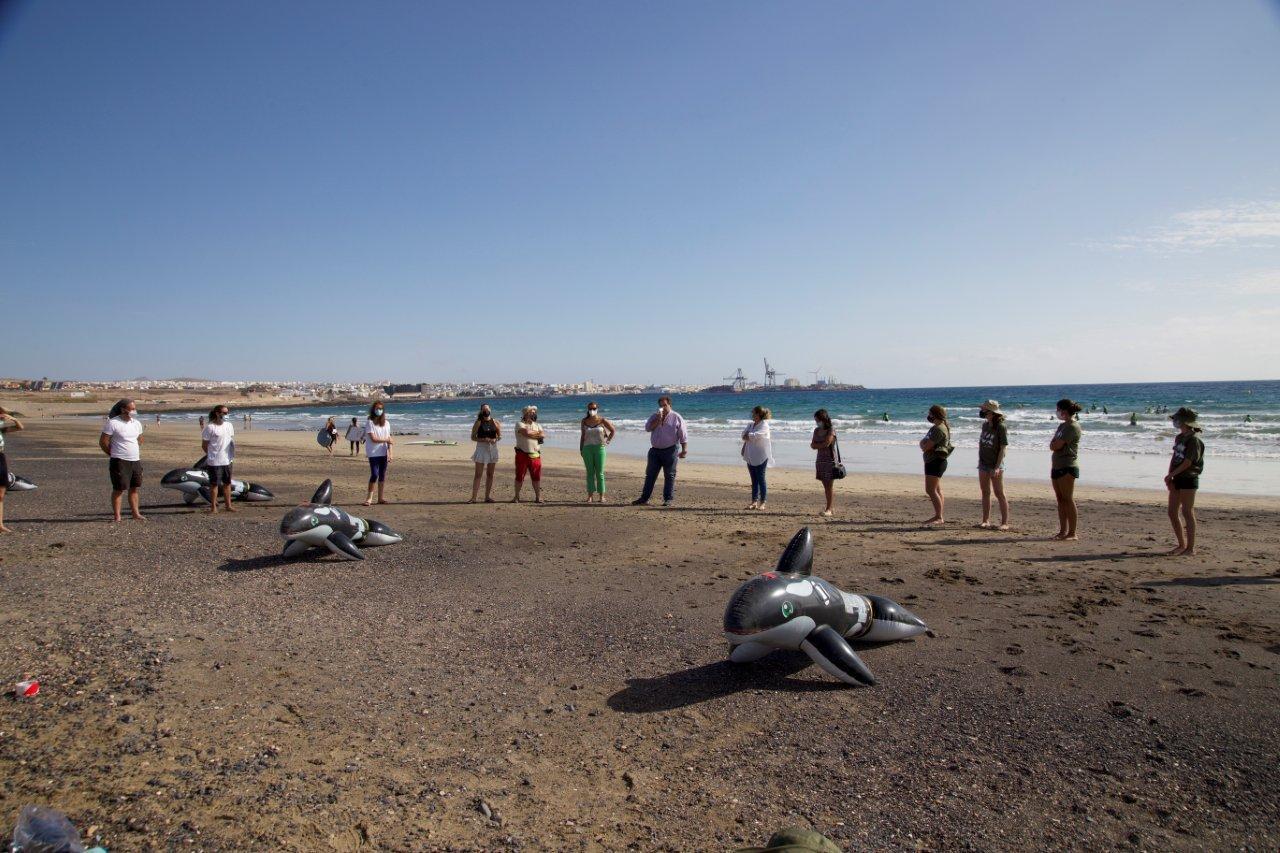
The use of this type of pontoon and the correct handling of the animals, which involves calling 112 and not attempting to return them to the sea without prior assessment by specialists, will help to prevent the death of stranded cetaceans. These and many other issues were extensively discussed at the workshop held this weekend, which is planned to be repeated on all the islands of the archipelago.
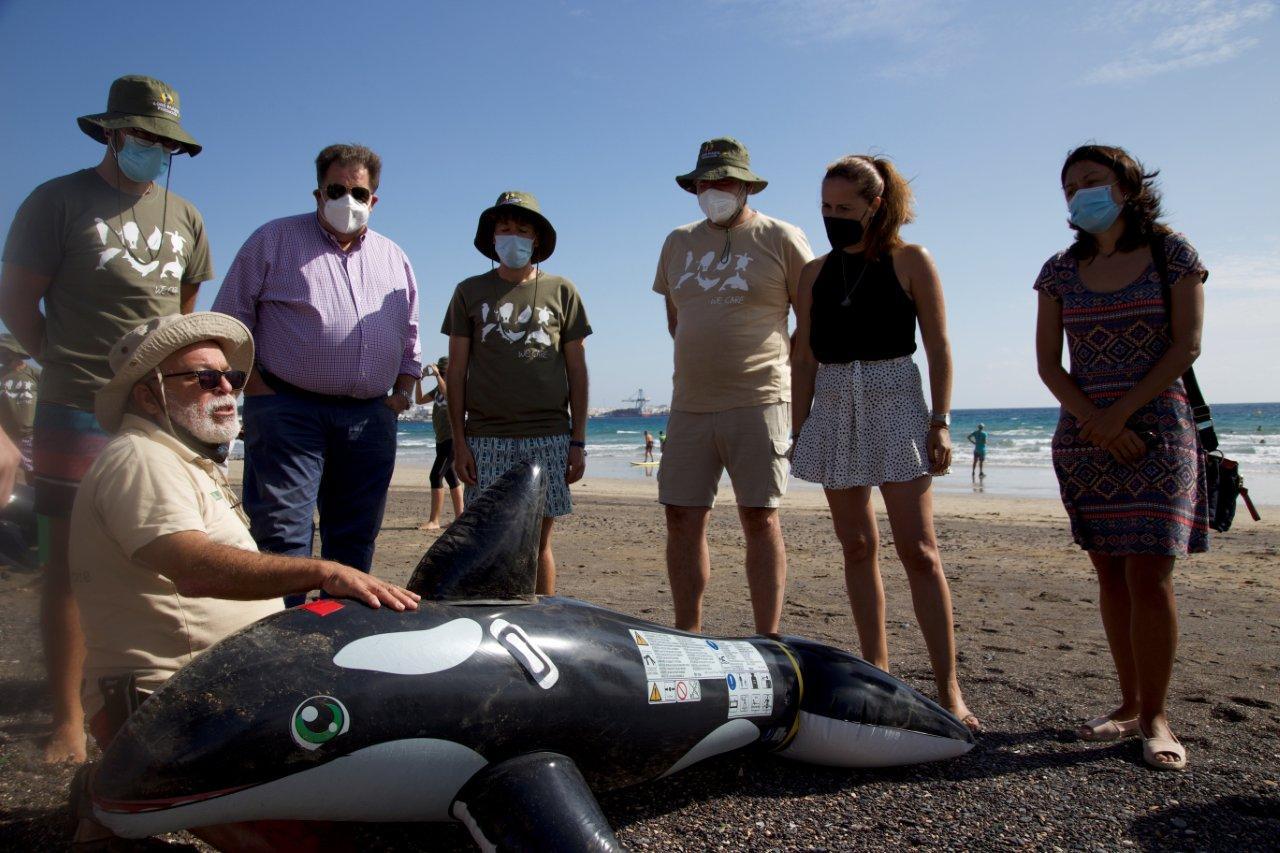
ABOUT CANBIO
CanBIO is an environmental research programme financed in equal parts by the Government of the Canary Islands and Loro Parque with two million euros, which will be invested over the next four years to study climate change in the sea and ocean acidification and its effects on marine biodiversity in the Canary Islands and Macaronesia. Different research groups from the University of La Laguna and the University of Las Palmas de Gran Canaria are also participating in the project, as well as other environmental volunteer groups.
MARCET II
It is an INTERREG project that aims to transfer technology in the conservation of marine living resources in Macaronesia to the productive sectors of the four archipelagos that make up the region. It is led by IUSA and involves the participation of the Loro Parque Fundación, the University of La Laguna, the University of Las Palmas de Gran Canarias, as well as other academic, scientific and non-profit institutions from the Azores, Madeira, the Canary Islands and Cape Verde.
